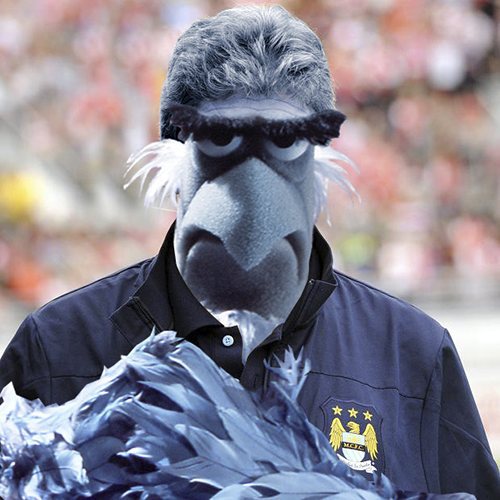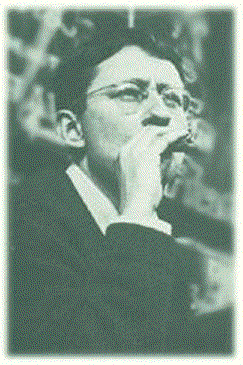 by Guy Debord » Thu Apr 09, 2015 12:16 pm
by Guy Debord » Thu Apr 09, 2015 12:16 pm
David Mooney on ESPN. Unfortunately, I agree with him...
In January 2007, Manchester City fans witnessed a dour 0-0 draw with Bolton at the Reebok Stadium. That day, the away end was much emptier than it otherwise might have been, as the visiting fans staged something of a protest against the £42 charged by the hosts.
Back then, City's fans were frequently lauded as some of the best in the game. They followed their team through thin and thinner but still stumped up the cash for things like a 300-mile round trip to watch a 1-0 defeat at Wycombe. But by the time Stuart Pearce's side were whimpering in the Premier League, the supporters had had enough of their loyalty being exploited.
The cost of tickets has been an issue for all clubs across the football pyramid, though Manchester City have always held on to the small mercy of being one of the least expensive of the elite clubs since their recent takeover, investment and success. Though while the club might still offer the cheapest season ticket in the Premier League, there has been a bad reaction to the news of increased prices for another year.
At the other end of the scale, the most expensive ticket for the club in 2015-16 will be £1750, which works out at more than a pound a minute of Premier League football. That doesn't include any home Champions League, FA Cup or League Cup matches that the champions are drawn into. Though, of course, they are optional and represent an additional charge on top.
That £1750 is for access to the "premium" padded seating, with a second-tier view of the pitch on the halfway line, where new bars will be available for fans to soak up the pre- and post-match atmosphere. Those there already that just want to watch the game will have to pay through the nose to keep the seat or relocate.
Looking at the price structure for next season, it's not bad in comparison to the likes of Arsenal or Chelsea but that's hardly the point. It's an increase that really wasn't needed to be put in place and one that's stuck in a lot of fans' throats. Though it does at least try to reflect the quality of view, it does have the bizarre result of giving a number of fans a small reduction while it highly inflates prices for others.
Man City's poor form makes next season's ticket price hike all the tougher for fans to get to grips with.
The additional costs here and there aren't the result of the introduction of Financial Fair Play Regulations. While many will argue that the club needs to maximise every single one of its revenue streams, the extra money generated by this move could just as easily have been found with a new commercial partner in another country.
City's global brand has been growing for a while and it's now common to see the club sign a deal with a sports drink firm in China or a chewing gum manufacturer in Malaysia. It's a business model that's served Manchester United well for years and one that makes perfect sense -- the cross-town neighbours have managed to freeze prices for four years running, this coming after a summer of spending huge sums of money rebuilding the squad.
On top of that, the money involved in the new TV deal will help the club spend tens of millions in the transfer market and still not fall foul of the "only-spending-what-you-earn" guidelines. £20 more per person on 30-odd thousand tickets won't make a blind bit of difference in the long run.
The biggest losers with the introduction of the new TV money will be the match-going fans. Not only are they charged more and more each year but the kick-off times are moved to suit the broadcasters, meaning travel to and especially from games can be at best inconvenient and at worst near impossible. And expensive.
Many City fans now face the choice of paying the extra money, relocating to another area of the ground that best suits their price range or whether to leave it and buy the odd ticket throughout the season. Though you'd expect the club would also argue if the Etihad is full every week then it doesn't really matter who is sitting in the seats and that the principles of supply and demand are in force.
Worse is a scheme that slipped in under the radar during a previous restructure of the prices. The number of points awarded for purchasing tickets (used to determine who gets priority for away games and to cup semifinals and finals) are awarded based on the price structure -- "Gold" membership only gives half that of "Platinum," but it is cheaper. It's no wonder there was a swift rebrand from them being called "loyalty points" since they no longer rewarded loyalty. Those who can afford to can buy their way ahead of the poorer fans for the more important games. The size of a supporter's commitment to the club isn't reflected by their size of their bank balance.
Frankly, £200,000 from the FA for clubs to put on free coach travel or to knock a couple of quid off the price of a ticket doesn't cut it. Now more than ever the 20 Premier League sides can afford to reduce costs for fans, yet they don't. The season ticket increases have been a massive PR-own goal from the champions, especially when the club could afford to keep them frozen. It's little wonder so many are upset.
David Mooney is a writer and a radio journalist based in Manchester.











